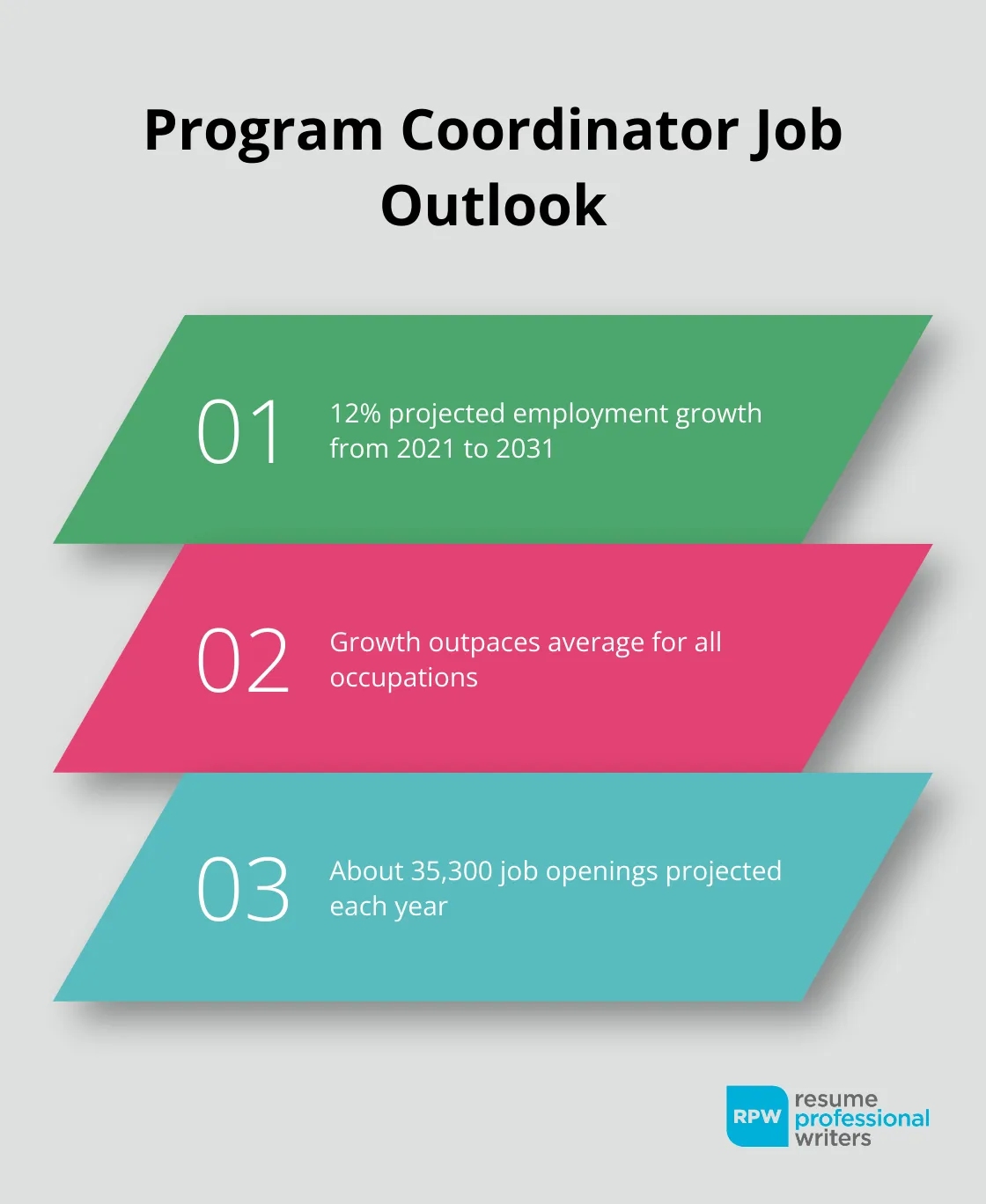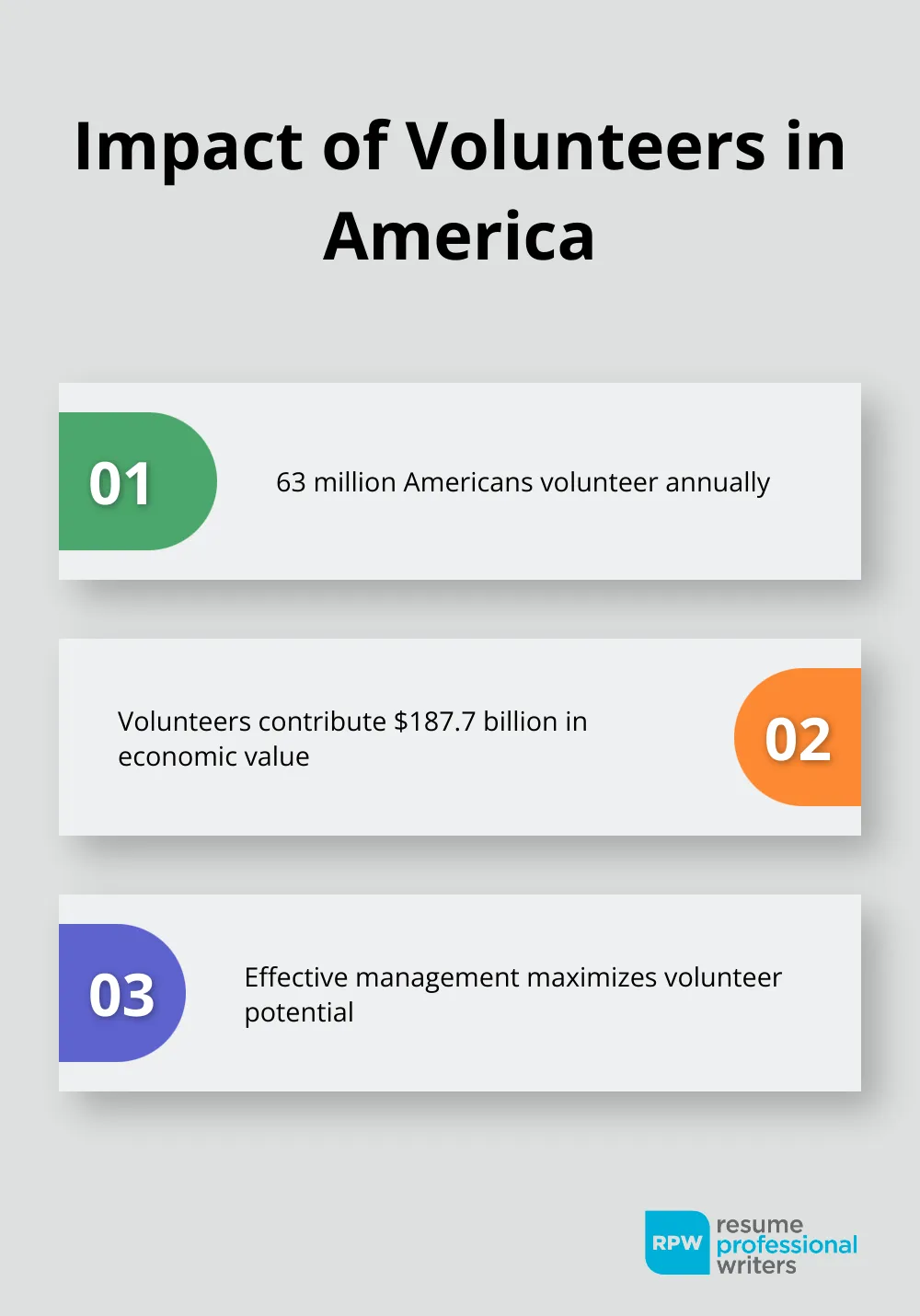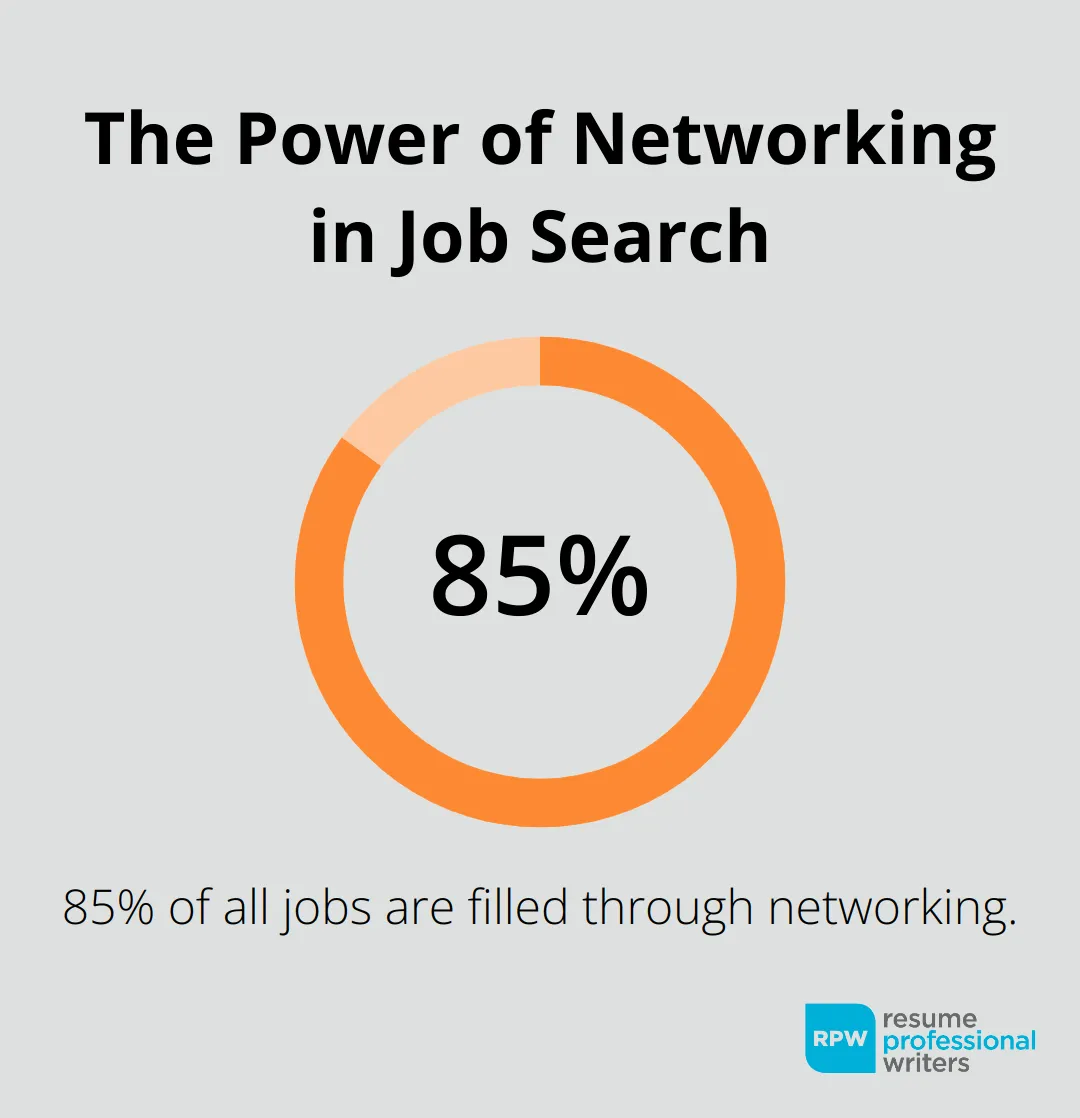If you’ve ever felt the urge to do something meaningful with your work, not-for-profit jobs could be the perfect fit. These roles give you the chance to support causes you care about—whether that’s helping people in need, protecting the environment, or driving social change.
More and more people today are choosing purpose over profit. They’re looking for work that aligns with their values and allows them to make a real impact. And the good news? There are plenty of opportunities to do just that.
In this post, you’ll explore some of the most rewarding jobs in the not-for-profit sector, discover the key skills that help you thrive, and get practical tips on how to land a role that brings both meaning and momentum to your career.
Top 5 Not-for-Profit Jobs That Make a Difference
Not-for-profit jobs offer a unique blend of personal fulfillment and professional growth. Let’s explore some of the most impactful roles in this sector.
1. Program Coordinators: Driving Change on the Ground
Program Coordinators form the backbone of not-for-profit organizations. They manage day-to-day operations and ensure projects achieve their goals. This role demands excellent organizational skills and the ability to multitask effectively.
The U.S. Bureau of Labor Statistics projects a 12% growth in employment for social and community service managers (including program coordinators) from 2021 to 2031. This growth outpaces the average for all occupations and translates to about 35,300 openings each year over the decade.

2. Fundraising Managers: Fueling the Mission
Fundraising Managers secure the financial resources needed to support an organization’s mission. They develop strategies to attract donors, organize events, and maintain relationships with supporters.
Organizations with a dedicated fundraising professional raise an average of 5 times more than those without one (as reported by the Association of Fundraising Professionals). This statistic underscores the importance of this role in the not-for-profit sector.
3. Grant Writers: Securing Vital Resources
Grant Writers research funding opportunities and craft compelling proposals to secure grants. This role requires strong writing skills, attention to detail, and the ability to translate an organization’s needs into persuasive narratives.
The average grant writer has a success rate of 30-50% in securing grants (according to the Grant Professionals Association). This success rate can translate into millions of dollars in funding for not-for-profit organizations.
4. Volunteer Coordinators: Mobilizing Community Support
Volunteer Coordinators harness the power of community engagement in not-for-profit jobs. They recruit, train, and manage volunteers, ensuring their skills effectively support the organization’s mission.
About 63 million Americans volunteer annually, contributing an estimated $187.7 billion in economic value (as reported by the Corporation for National and Community Service). Effective volunteer management maximizes this potential.
5. Social Workers: Directly Impacting Lives
Social Workers address societal challenges head-on. They provide direct support to individuals and communities, helping them navigate complex issues and access vital resources.
The National Association of Social Workers reports that social workers find employment in diverse settings (schools, hospitals, mental health clinics, and community organizations). This versatility makes social work a dynamic and impactful career choice in the not-for-profit sector.
These roles represent just a fraction of the meaningful careers available in the not-for-profit sector. Each position offers unique opportunities to make a tangible difference in the world while developing valuable professional skills. To succeed in these roles, specific skills and qualifications are necessary. Let’s explore these in the next section.

Essential Skills for Not-for-Profit Success
The not-for-profit sector demands a unique set of skills. We have identified key competencies that set top performers apart in this field. Let’s explore these essential skills and their contribution to making a meaningful impact in not-for-profit roles.
Communication: The Foundation of Success
Effective communication forms the cornerstone of success in not-for-profit jobs. A survey by the National Association of Colleges and Employers reveals that 73.4% of employers rank communication skills as their top priority when hiring. This skill becomes even more critical in the not-for-profit sector. You must articulate your organization’s mission to diverse audiences (donors, volunteers, beneficiaries). Focus on writing compelling grant proposals, delivering persuasive presentations, and practicing active listening. These abilities will help you build strong relationships and rally support for your cause.
Project Management: Navigating Complexity
Project management expertise proves invaluable in the not-for-profit world. The Project Management Institute reports that organizations undervaluing project management experience 50% more project failures. Not-for-profit professionals often manage multiple initiatives with limited resources. Familiarize yourself with methodologies like Agile or Scrum. Learn to use tools such as Asana or Trello to keep tasks organized and teams aligned. These skills will help you deliver impactful programs efficiently and on budget.
Financial Acumen: Maximizing Every Dollar
Financial literacy is crucial in a sector where every dollar counts. A study by the Nonprofit Finance Fund found that 62% of not-for-profits cite financial sustainability as a top challenge. Improve your budgeting skills and learn to interpret financial statements. Understand the nuances of not-for-profit accounting, including restricted and unrestricted funds. Familiarize yourself with grant management and reporting requirements. This knowledge will make you an asset to any organization striving to maximize its impact with limited resources.
Cultural Competence: Embracing Diversity
Empathy and cultural sensitivity are non-negotiable in the not-for-profit sector. According to the National Council of Nonprofits, organizations that prioritize diversity, equity, and inclusion (DEI) are better equipped to serve their communities. Cultivate your emotional intelligence and cultural competence. Seek opportunities to work with diverse populations and learn from their experiences. These skills will help you build trust, foster inclusive environments, and ensure your organization’s work truly meets community needs.
Adaptability: Thriving in Change
Adaptability and problem-solving abilities are essential in the ever-changing landscape of not-for-profit work. The Stanford Social Innovation Review emphasizes that successful not-for-profit leaders must be agile and innovative. Develop your critical thinking skills and learn to approach challenges creatively. Stay informed about emerging trends and best practices in your field. Prepare to pivot strategies when circumstances change. These skills will help you navigate uncertainties and drive your organization forward.
Mastering these skills takes time and effort, but the impact is immeasurable, especially when pursuing not-for-profit jobs. As you develop these competencies, you’ll amplify your ability to make a meaningful difference in the world. The next section will guide you on how to find and secure a rewarding not-for-profit job that aligns with your skills and passion.
Tips for Landing Your Dream Not-for-Profit Jobs
Securing a position in the not-for-profit sector requires a strategic approach. Here’s how you can increase your chances of landing a not-for-profit job that aligns with your values and skills.
1. Expand your not-for-profit network.
Networking plays a vital role in the not-for-profit world. A survey by LinkedIn reveals that 85% of all jobs are filled through networking. Attend industry events, join professional associations, and engage with not-for-profit leaders on social media platforms. The National Council of Nonprofits hosts regular webinars and conferences that provide excellent networking opportunities. Reach out for informational interviews with professionals in roles you aspire to. These connections can lead to job opportunities and valuable insights into the sector.

2. Gain hands-on experience through volunteering.
Volunteering provides a powerful way to gain relevant experience and demonstrate your commitment to a cause, especially when pursuing not-for-profit jobs. VolunteerMatch reports that 41% of hiring managers consider volunteer work equally valuable as paid work experience. Search for volunteer opportunities that align with your career goals in the not-for-profit sector. If you’re interested in program management, offer to coordinate events for a local charity. Aspiring grant writers can offer their skills to small nonprofits that may not have dedicated staff for this role. This hands-on experience will strengthen your resume and provide talking points for interviews.
3. Craft a mission-driven application.
Your resume and cover letter should reflect your passion for the cause and highlight relevant skills. The Nonprofit Times emphasizes that 65% of hiring managers in the sector prioritize candidates who demonstrate a genuine commitment to the organization’s mission. Customize your application to each position, using language that mirrors the organization’s values and goals. Quantify your achievements where possible, showing how your work has made a tangible impact. If you’re transitioning from the corporate world, focus on transferable skills and how they apply to the not-for-profit context.
4. Research potential employers thoroughly.
Conduct in-depth research on potential employers before applying. The Foundation Center’s database provides comprehensive information on over 140,000 foundations and corporate donors (use this resource to understand an organization’s funding sources, programs, and impact). Pay attention to their annual reports, which often highlight strategic priorities and challenges. This knowledge will help you tailor your application and prepare for interviews. It also demonstrates your genuine interest in the organization’s work.
5. Prepare for mission-focused interviews.
Not-for-profit interviews often focus on your alignment with the organization’s mission and values. The Bridgespan Group (a leading nonprofit consultancy) advises candidates to prepare specific examples of how their work has contributed to social impact. Discuss your motivations for entering the sector and how you’ve demonstrated commitment to similar causes in the past. Prepare thoughtful questions about the organization’s approach to impact measurement and future goals. This shows your understanding of sector-specific challenges and your proactive approach to addressing them.
Land Your Target Not-for-Profit Jobs with a Standout Resume
If you’re passionate about helping others and making a difference, the not-for-profit sector offers meaningful career paths just for you. Whether it’s as a Program Coordinator, Fundraising Manager, or Social Worker, these roles let you grow professionally while doing work that truly matters to communities and causes.
To succeed in this field, you need more than just good intentions. Skills like clear communication, project planning, and adaptability are key. But here’s the thing: hiring managers need to see those strengths right away on your resume—and that’s where many job seekers struggle.
That’s why it helps to have experts on your side. Resume Professional Writers can craft a tailored resume that highlights your passion and qualifications for not-for-profit work. With a strong resume that reflects both your skills and your commitment, you’ll be one step closer to landing a job where you can make a real impact. Get started today with our resume writers and open the doors to a purpose-driven career.








